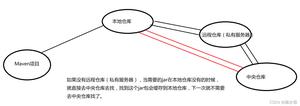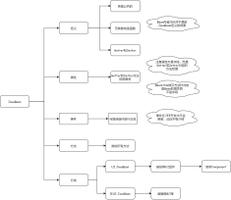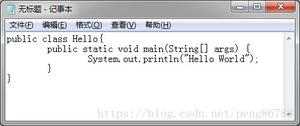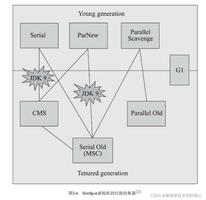【Java】JDK中注解@Contended是干什么的?怎么使用?
问题如图:
JDK中注解@Contended是干什么的?怎么使用? 这个注解还是在jdk1.8中加入的呢。。
附上代码:
回答
避免伪共享(false sharing)。
先引用个伪共享的解释:
缓存系统中是以缓存行(cache line)为单位存储的。缓存行是2的整数幂个连续字节,一般为32-256个字节。最常见的缓存行大小是64个字节。当多线程修改互相独立的变量时,如果这些变量共享同一个缓存行,就会无意中影响彼此的性能,这就是伪共享。
然后给一段参考代码:
public class FalseSharing implements Runnable { public final static int NUM_THREADS = 4; // change
public final static long ITERATIONS = 500L * 1000L * 1000L;
private final int arrayIndex;
private static VolatileLong3[] longs = new VolatileLong3[NUM_THREADS];
static {
for (int i = 0; i < longs.length; i++) {
longs[i] = new VolatileLong3();
}
}
public FalseSharing(final int arrayIndex) {
this.arrayIndex = arrayIndex;
}
public static void main(final String[] args) throws Exception {
long start = System.nanoTime();
runTest();
System.out.println("duration = " + (System.nanoTime() - start));
}
private static void runTest() throws InterruptedException {
Thread[] threads = new Thread[NUM_THREADS];
for (int i = 0; i < threads.length; i++) {
threads[i] = new Thread(new FalseSharing(i));
}
for (Thread t : threads) {
t.start();
}
for (Thread t : threads) {
t.join();
}
}
public void run() {
long i = ITERATIONS + 1;
while (0 != --i) {
longs[arrayIndex].value = i;
}
}
public final static class VolatileLong {
public volatile long value = 0L;
}
// long padding避免false sharing
// 按理说jdk7以后long padding应该被优化掉了,但是从测试结果看padding仍然起作用
public final static class VolatileLong2 {
volatile long p0, p1, p2, p3, p4, p5, p6;
public volatile long value = 0L;
volatile long q0, q1, q2, q3, q4, q5, q6;
}
// jdk8新特性,Contended注解避免false sharing
// Restricted on user classpath
// Unlock: -XX:-RestrictContended
@sun.misc.Contended
public final static class VolatileLong3 {
public volatile long value = 0L;
}
}
本地机器上的测试结果:
VolatileLong: duration = 29594765000VolatileLong2:duration = 7234555000
VolatileLong3:duration = 7167475000
加一句
要注意的是user classpath使用此注解默认是无效的,需要在jvm启动时设置-XX:-RestrictContended
以上是 【Java】JDK中注解@Contended是干什么的?怎么使用? 的全部内容, 来源链接: utcz.com/a/90671.html









